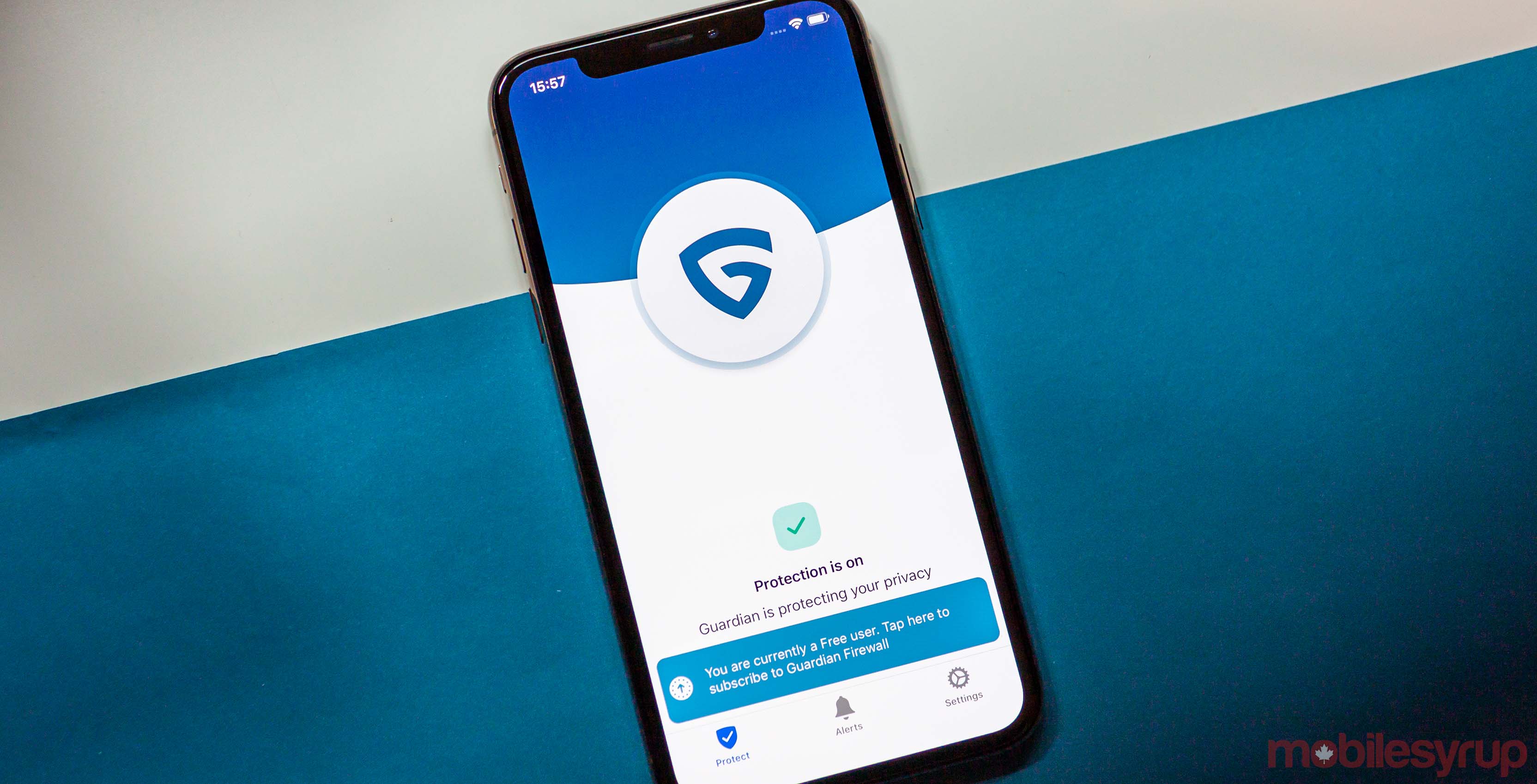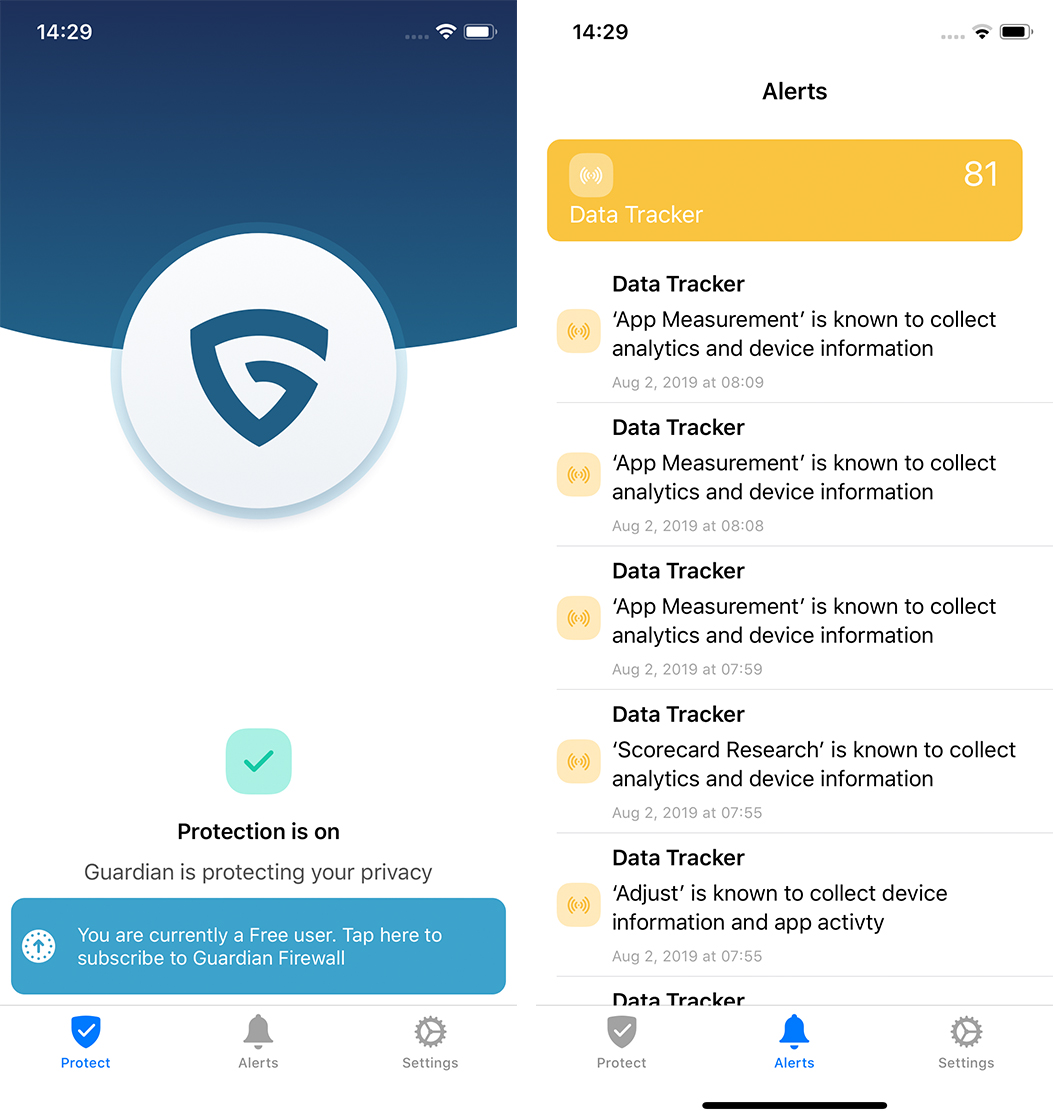
In 2018, Apple brought new anti-tracking and fingerprinting features to both macOS Mojave and iOS 12. The goal was to build privacy into the Safari browser to protect users from trackers that followed your web activity and served ads accordingly.
While having tracking protections in the browser is helpful, many apps track users as well. There are ways to prevent this kind of tracking, but a new app may offer one of the most straightforward solutions: Guardian Firewall makes privacy as easy as tapping a button.
Guardian runs in the background on your iPhone and blocks data and location trackers without breaking app functionality. On top of that, it serves up a handy list of all the trackers it catches — sans the name of the app that deployed them. Including the culprit apps would mean compiling a list of all the apps on your phone, something that goes against the privacy ethos of Sudo Security Group, the developer behind the app.
Private by design
In fact, Guardian Firewall was built from the ground up to protect privacy. Sudo designed it to keep the developers boxed out, so they can’t see any of the data. It also means Sudo had to come up with innovative solutions to some problems to avoid common-place solutions that compromise privacy.
One example of this was in Guardian’s pre-release. Someone launched a denial of service attack against the app. Since Guardian doesn’t record IP addresses, there was no way to see where the attack was coming from. Sudo could have adjusted how Guardian handles IP addresses to solve the problem, but that went against the company’s values.

So, Sudo built a solution using a ‘device check’ offered by Apple but encrypts the data. The result is that Sudo learns whether the device is a legitimate iOS device, and that’s it.
You can learn more about how Sudo engineered its way around this issue, as well as more of the background behind the developers, in this detailed Wired report on the app.
An easy-to-use VPN that’s sadly restricted to iOS
Guardian Firewall works by establishing a virtual private network (VPN) and a random connection identity so it can keep track of data without learning who you are. Turning Guardian on and off generates a new VPN connection and connection identity with no way to connect the dots between sessions.
Then, Guardian pushes an encrypted stream of your data to the cloud, where it’s filtered. Automated machine learning takes care of the filtering by evaluating app behaviour and detecting when it tries to communicate beyond itself, such as sending data to a marketing analytics firm or advertiser. Guardian can also identify things that could be invasive, such as page hijackers that push mobile ads.
Guardian Firewall does this without significantly impacting battery life or performance. In my testing, web browsing worked well, and I was able to stream HD video without issue. I also didn’t notice any dip in battery life. That said, Guardian isn’t perfect: I used the free version and found that the app periodically turned off without telling me, leaving me open to trackers.
Of course, it’s essential to recognize that, like any VPN, there are questions of trust involved. Guardian sends all your data through its servers — how do you know if it stays there, or if it’s safe?
However, there are a few benefits to Guardian. For one, it uses the built-in iOS VPN API instead of its own, and it encrypts everything using industry-standard protocols, nothing proprietary. In other words, Guardian didn’t create its own encryption and VPN protocols that could potentially have backdoors — it uses established and likely safer methods.
Ultimately, users should check up on Guardian and Sudo before trusting their data to the app or company behind it.
However, if you feel like Guardian Firewall is the right option for you, you can download it from the App Store for free. There’s a monthly subscription fee as well, which provides access to a higher speed VPN, premium servers and locations, and more. It costs $12.99 per month or $129.99 per year.
For now, there’s no Android version planned. The Sudo developers are more familiar with iOS and built Guardian specifically for that platform. However, that doesn’t rule out a version for Android in the future.
MobileSyrup may earn a commission from purchases made via our links, which helps fund the journalism we provide free on our website. These links do not influence our editorial content. Support us here.


